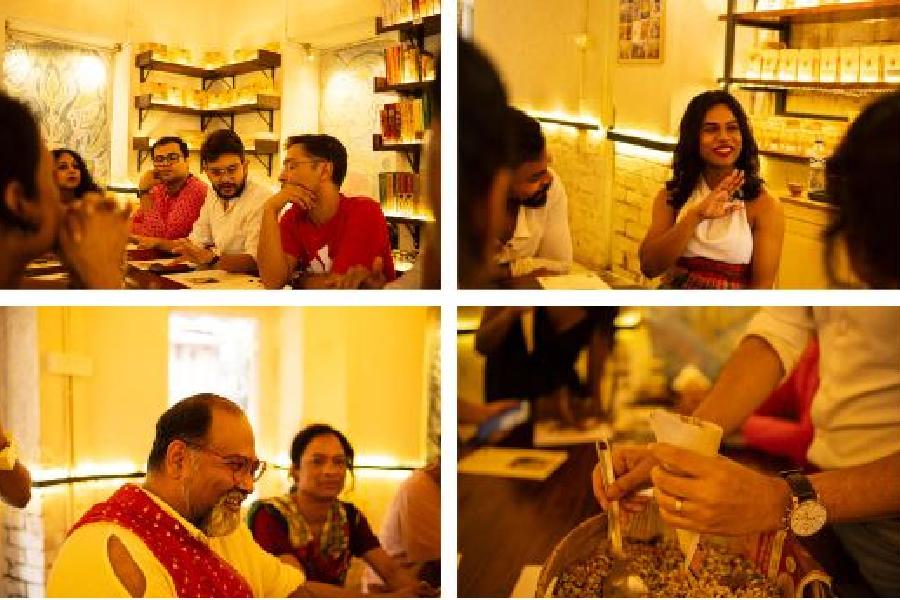The inaugural evening of ‘Queering Gastronomy: Gender, Sexuality and Food’, organised by House of ODD, University of California Santa Barbara Feminist Studies (UCSB) in collaboration with Annaja — Amar Khamar, saw several queer activists, food entrepreneurs and cultural workers gather at Amar Khamar earlier this month.
Navigating through Calcutta’s gastronomic revolution, the gathering strived to reflect on the intersection of identity, gender, and sexuality with food. Stereotypes surrounding kitchens in modern-day Calcutta where traditional recipes and Bengali staples are being remapped by contemporary eateries were also underlined. It featured a catered meal by Chef Preetam Bhadra and through dialogue alongside shared meals, the event spotlighted ways in which food can be a powerful tool for expressing and embracing diverse identities.
The evening made attendees rethink ideas about home, food and nourishment. Some of these ideas included highlighting what barir khabar (food at home) meant for trans people who often have to leave their birth homes to find belongingness and acceptance. People were urged to look at cultures of comfort food and experiences of queer and trans people in such spaces. For instance, how does a trans person feel under the public gaze at popular cafes around town? Similarly, how do trans people negotiate neighbourhood gays and gender policing at a phuchkawala’s kiosk?
A line of action was planned by the end of the evening. It was decided that attendees would visit historic and modern eateries in order to make those places queer-friendly. A series of art workshops will continue to be held within the LGBTQIA+ community that will throw light on the food choices of queers.
By exploring how marginalised communities experience and navigate food spaces, this initiative highlights the need for greater inclusivity and sensitivity in our culinary culture. It fosters a deeper understanding of how food can both reflect and shape our identities, and create opportunities to challenge and redefine traditional narratives around nourishment and community.
Sandeepta Das, head researcher of Queering Gastronomy, said: “At the intersection of gender, sexuality, and food, we find a rich tapestry of experiences where our culinary choices become acts of self-expression and resistance. This event celebrates how what we eat can embody our identities, challenge conventions, and forge inclusive communities.”
Debanuj Dasgupta, associate professor of feminist and gender studies at UCSB, said: “Exploring gender, sexuality, and food invites us to rethink the ways in which our identities are intertwined with what we eat. It’s a journey of discovering how our plates can reflect our stories, challenge norms and create spaces where everyone’s flavour and identity are celebrated.”
Bhaskar Das, psychiatrist and queer activist, said: “Queer gastronomy transforms the act of eating into a celebration of identity and liberation, where every dish is a statement of inclusivity and every meal a reflection of our diverse, authentic selves.
Pictures courtesy: The organisers











